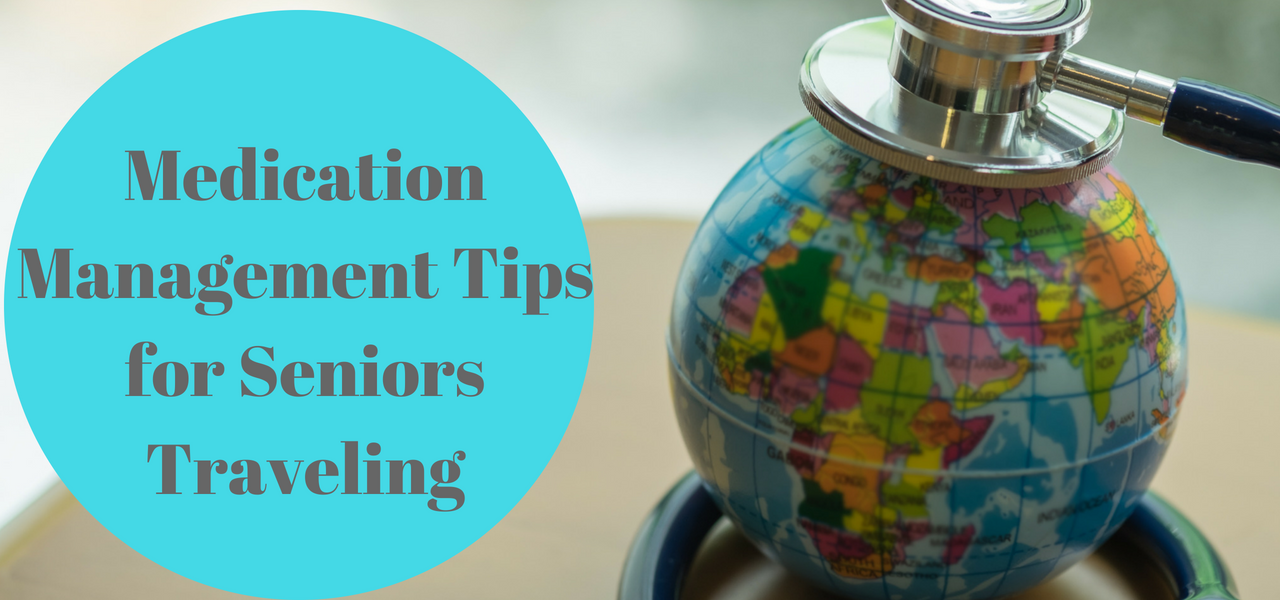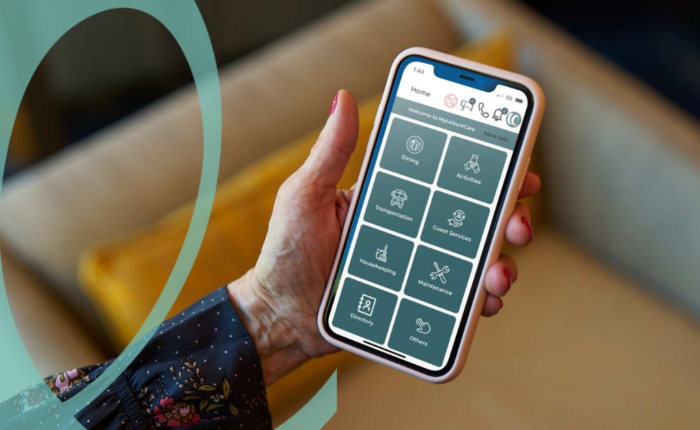
With retirement comes newfound free time and a chance to travel the world. But, more than 50% of seniors take five or more medications every day and managing complex medication schedules can be intimidating when traveling. Dealing with airport security, new food, and drink that could negatively interact with medication, and even considering time zone changes can be challenging while traveling.
Learn more about the importance of proper medication management and how to maintain your schedule and stay healthy while traveling.
Prescription Drug Misuse & Under Use in Seniors
A recent study from Ghent University in Belgium found that more than half of older adults take 5+ medication every day and an alarming number are not taking their prescribed medications the right way. According to the study, nearly 66% of participants did not take the full amount of medications needed, 56% were misusing their prescriptions, and 40% both misused and underused their various medications. Only 17% of participants in the study demonstrated no issues with misuse or underuse.
Prescription drug misuse can have severe consequences on senior health including worsening symptoms, ineffectiveness, and in some cases, death.
Experience Leisure Care Senior Living
11 Tips for Managing Medication While Traveling
There’s no doubt that proper medication management is crucial to senior health and managing a complicated medication schedule can become even more challenging when traveling.
These 11 tips can help keep you or your senior loved ones healthy and well on the road:
1. Travel with a list of prescriptions and dosages
Although you may know your medication schedule from memory, it can be helpful to write down exactly what you take when. If traveling internationally, jet lag can set in or if traveling to see friends and family, you may become distracted and forget to take your medication. Traveling with a comprehensive list can also help caregivers and medical professionals along the way in case of an emergency.
2. Consider how to transport medication
Does your medication need to be kept cold? Will high temperatures make your medication less potent? Be sure your medication is kept at a safe temperature (preferably with you) while you are traveling to ensure its potency and effectiveness.
3. Keep medication readily available throughout your travel
As a general rule, keep your medicine in an easily accessible pocket or carry on during your travels. Having your medication with you can help avoid an emergency in case of travel delays or lost luggage. Let someone traveling with you know where it is in case of emergency.
4. Be mindful of time zone changes
Traveling usually means changing time zones so a medication you take at 8am every day may now need to be taken at a different time. Usually, medication needs to be taking a certain time apart so talk to your doctor about time zone differences and when you need to be taking your medication to make it most useful.
5. Have doctors notes for any mediation or paraphernalia
This is especially true if your medication has any needles and you are traveling by air. But, to be safe, it’s best to have a doctors note that clearly outlines the medication you have and what you need to have with you to take that medication.
6. Be aware of any restrictions if traveling abroad
Some medications that are fine to bring into the United States are not okay to bring in to other countries. Some countries even restrict over the counter drugs like ibuprofen and aspirin, and you will need to be especially cautious if your prescription contains codeine.
7. Keep prescriptions in original containers with the prescription note
While airport security in the United States does not require your prescription to be in its original container, it’s a great idea to keep everything as official as possible – especially if traveling internationally. Ask your doctor for a copy of your prescriptions and try to keep your medication in its original container with your prescription information on it.
8. Consider how new foods or drinks may interact with your medication
In your normal environment you are well aware of how your everyday food and drink interact with your medication, but when traveling, all bets are off. Does raw fish cause a negative interaction with your medication? What about that before dinner cocktail? Talk to your doctor about any potential interactions.
9. If flying and going through airport security, let TSA know you have medication
Flyers may be surprised to learn that liquid medication can be in a carry-on bag, even if it is more than 3.4 ounces. Additionally, travelers do not have to place the medicine in a zip top bag. However, flyers will need to let airport security know that he or she does have the medication and may be subject to additional screening. The medication does not have to be in its original prescription bottle and travelers may request that medication not be X-rayed.
10. Be prepared
Ultimately, all successful travel comes down to being prepared and traveling with medication is no different. Having medication readily accessible, having all your documents and prescriptions organized in one place, and being open about your needs with your fellow travelers will set you up for success!
11. Contact an expert in senior travel
Travel by Leisure Care is a travel agency specifically designed to help seniors travel the world, and do it well. We work closely with residents and their families to create the trip of their dreams and manage all travel hiccups flawlessly. We are well-trained in senior care and can manage senior medication schedules with ease – all over the world.
How have you managed senior medication while traveling? Share with us in the comments below! We’d love to hear your tips!
Find a Leisure Care Community
Better with age, exceptional with us! Come and see how Leisure Care communities are helping seniors rediscover (and sometimes reinvent) themselves.








